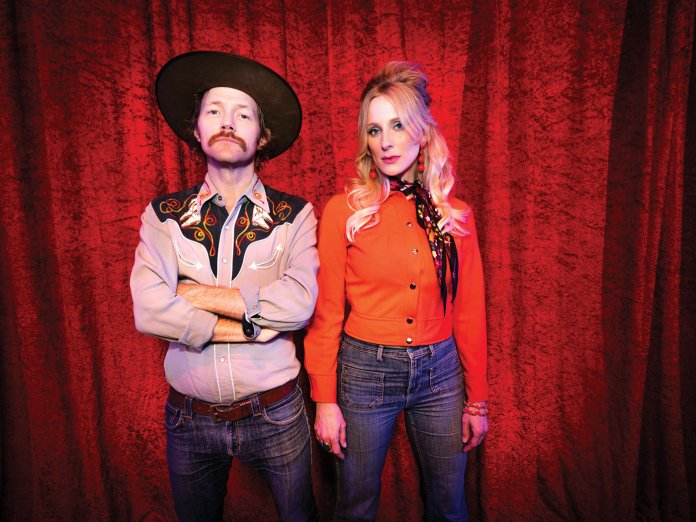Prior to forming Whitehorse in 2010, married couple Melissa McClelland and Luke Doucet had each made a string of singer-songwriterly albums that followed all manner of musical directions. Both also had a shared history in Sarah McLachlan’s band, while Doucet was, for a time, leader of Vancouver indie-rock types Veal. The varied stylistic elements of their work seemed to find an ideal home in the fluid sensibility of Whitehorse, whose first few releases veered from tape-loop folk to roots-rock to a bluesy kind of cinematic noir.
Eight albums in, Whitehorse now prove themselves masterful exponents of timeless country. I’m Not Crying, You’re Crying is an album that follows a lineage that runs from the likes of George Jones and Melba Montgomery to Emmylou and Gram, from Johnny and June through to My Darling Clementine. Like fellow Canadian Daniel Romano, Whitehorse adopt and transmute genres in a way that feels convincing rather than contrived, as if blessed with a deeper understanding of the art of country dynamics. Harmonies are key here, their voices either blending to aching perfection on heartbreak ballads or else finding urgent motion on rockabilly-ish songs like “Manitoba Bound”, which rattles along at a fair lick.
They also happen to be highly capable players, slipping readily between picked guitar, bottleneck slide and pedal steel. Above all, they’re very fine singers in their own right, interchanging leads throughout. McClelland just about shades it with the wonderful “If The Loneliness Don’t Kill Me” and “The Road”, the latter an expansive hymn to winding curves, motel curtains and flashing neon: “Reading signs / Chasing yellow lines / Tracing fingers over gas station maps”. And while she goes full ’70s Dolly on “Bet The Farm”, Doucet evokes the boozy Bakersfield country of Gram Parsons on the despairing “I Might Get Over This (But I Won’t Stop Loving You)”, its protagonist in the kitchen at last call, surrounded by leftovers and wine. Sometimes playful, sometimes poignant, Whitehorse may have just found their ideal territory.


